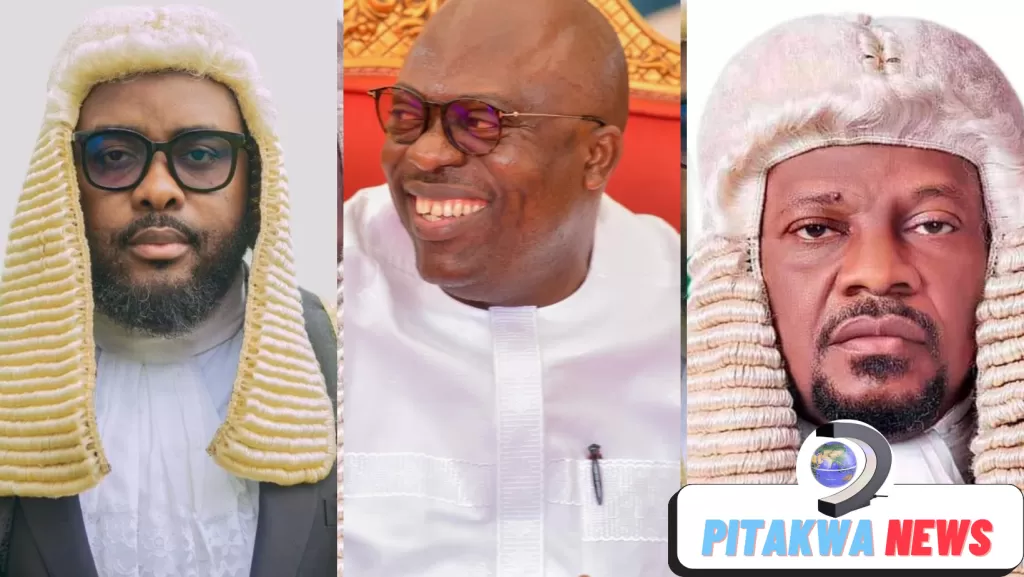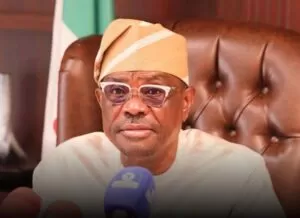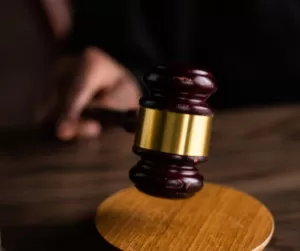Gov Fubara Planted a Coup to Remove Speaker Martins Amewhule Says Minister Wike

The situation in Rivers State involving Governor Siminalayi Fubara and the Minister of the Federal Capital Territory, Nyesom Wike, alongside the Rivers State House of Assembly Speaker Martins Amewhule, has indeed been tumultuous. Here’s a balanced overview based on the information available up to October 8, 2024:
- Background: The conflict primarily stems from political differences between Governor Fubara and his predecessor, now FCT Minister Nyesom Wike. This rift led to significant political maneuvers within the Rivers State House of Assembly, involving party defections, court battles, and legislative actions.
- Key Events:
- Defection: In December 2023, 27 lawmakers, including Speaker Martins Amewhule, defected from the Peoples Democratic Party (PDP) to the All Progressives Congress (APC), a move seen as aligning with Wike’s political interests against Fubara’s administration.
- Court Interventions: There were multiple court orders and appeals related to this defection. Initially, a Rivers State High Court restrained Amewhule and his group from legislative activities, but this was later contested and led to a Court of Appeal decision in July 2024, which vacated an earlier order sacking these lawmakers. This ruling effectively recognized the legitimacy of Amewhule’s leadership in the House.
- Peace Deal: President Tinubu mediated a peace agreement between Wike and Fubara in late 2023. This included recognizing the 27 defected lawmakers’ leadership in the Assembly, among other resolutions aimed at restoring peace in Rivers State.
- Accusations of a Coup: Minister Wike’s claim that Governor Fubara attempted a coup against Speaker Amewhule can be seen in the context of these political battles. The term “coup” here likely refers to political maneuvers rather than a military takeover. Fubara’s actions, especially any court or legislative attempts to nullify the defection or challenge Amewhule’s speakership, could be interpreted as trying to undermine or remove Amewhule’s leadership, which Wike might label as a “coup”.
- Political Interpretation: From an outside perspective, this scenario reflects typical Nigerian political dynamics where power struggles often manifest through legal, legislative, and sometimes extra-legal means. The conflict between Fubara and Wike might be less about personal animosities and more about control over political machinery, resources, and influence in Rivers State.
- Public and Political Reaction: Such political dramas are not unusual in Nigerian politics, where political godfatherism plays a significant role. The public might view these events with a mix of cynicism, fatigue, or engagement, depending on how these power plays affect governance, development, and their daily lives.
- Implications: The ongoing feud could affect governance stability in Rivers State, potentially leading to administrative paralysis or developmental stagnation if not resolved. However, on a positive note, the involvement of President Tinubu in mediation might signal a move towards stabilizing the region’s politics.
In summary, while Minister Wike’s statement about a “coup” might be dramatizing the political maneuvers for effect, it underscores the deep-seated power struggle within Rivers State’s political landscape. This situation exemplifies how Nigerian politics can be intensely personal and fraught with legal battles, highlighting the need for more institutionalized political processes to mitigate such conflicts.




